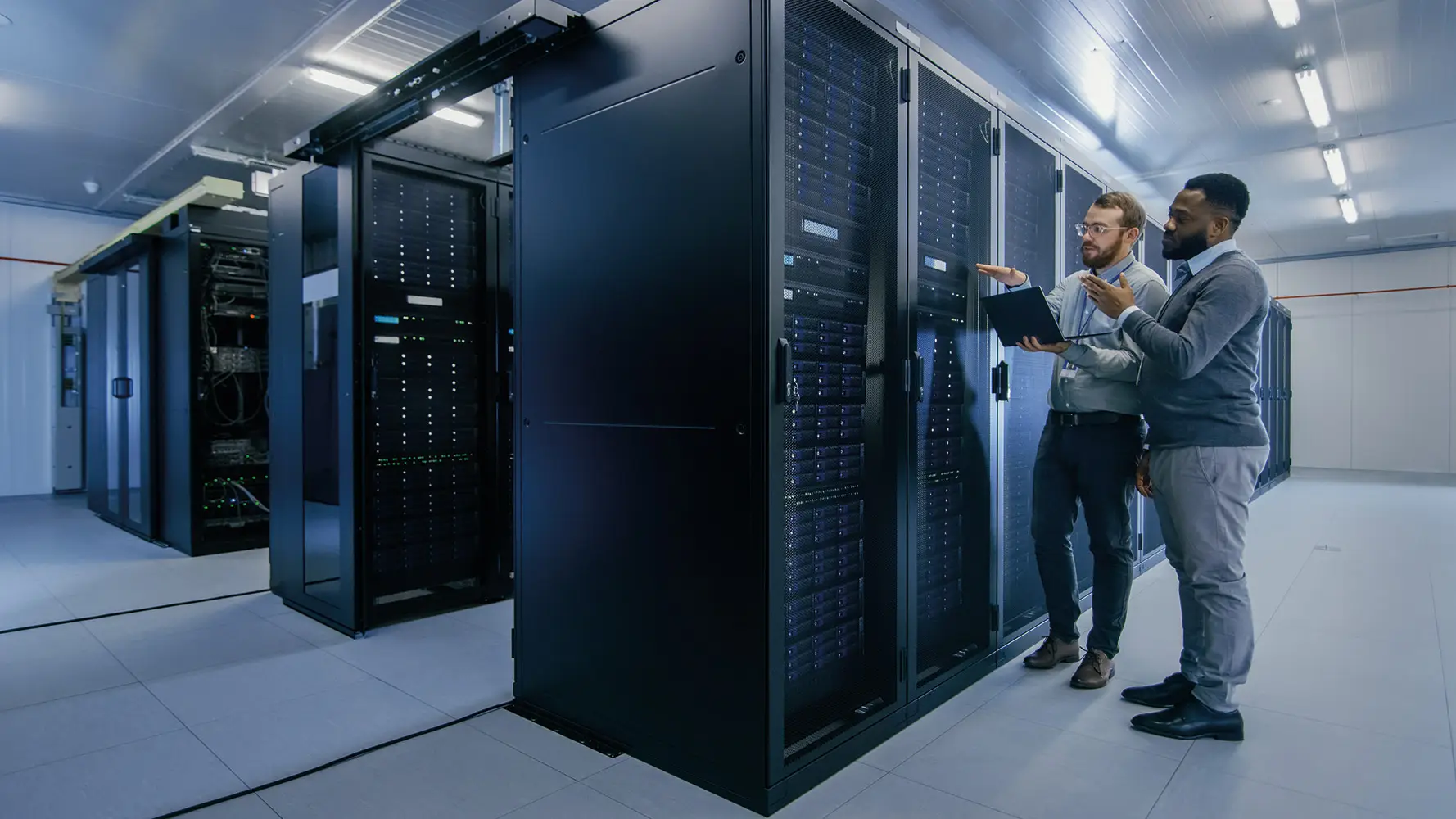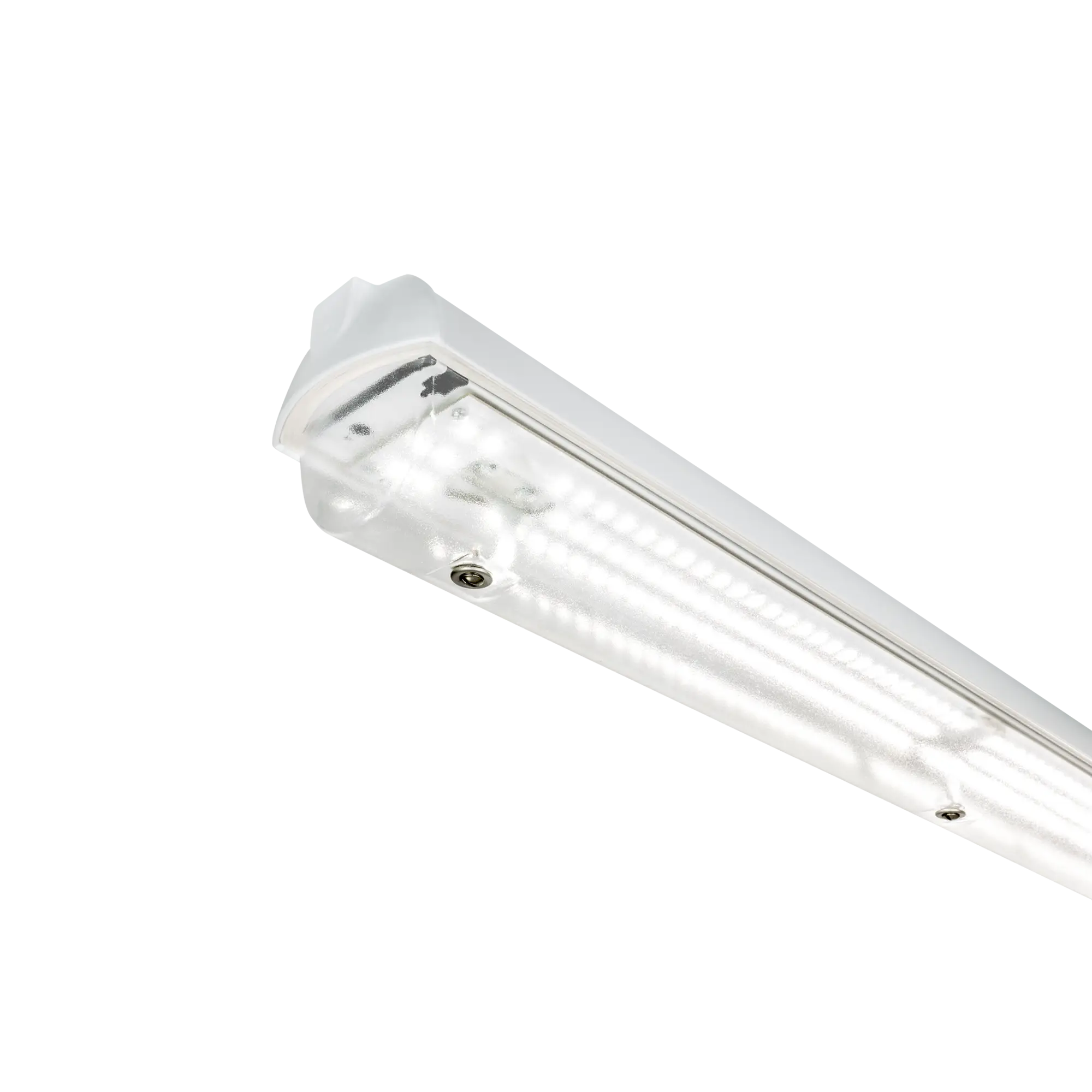Data Centre
England, United Kingdom
Technology changes in recent years have led to a rapid increase in the number and size of Data Centres. Smartphones, online shopping, cloud technology and social media are just some of the developments which have led to this growth. From a lighting perspective, Data Centres can present unique challenges.

The Challenge
Data centres use lots of energy, and it is difficult to achieve energy savings from the major loads such as servers and air conditioning chillers.
One area where savings can be achieved is lighting. The Thorlux approach is to use long-life, highly efficient luminaires coupled with Smart lighting systems, to extend maintenance periods and reduce running costs.
The Solution
The data centre lighting refurbishment was undertaken to promote energy efficiency, increase lighting levels and provide increased user control of the environment.
Movement Sensing
Each row of luminaires is connected via Motionline technology to ensure that only areas in use are illuminated, maximising energy saving. Certain luminaires on main walkways are set to dim upon absence but not switch off; this security setting provides a safe and secure working environment. Presence detection provides an average saving of 95% due to very low occupancy patterns.Maintained Illuminance
Each luminaire dims itself independently depending upon the light level underneath it. Due to the nature of the work taking place the maintained light level is set at 250 Lux, with a design potential of 500 Lux when required for service activity. Maintained illuminance saves 40% of energy on average.User control
Each row is controlled by a Thorlux Smart Touch scene setting plate, allowing complete user override of each aisle. Once vacated the area reverts to automatic operation, saving energy.
The original lighting load was reduced by 39% due to the increased efficiency of LED technology. The combined presence detection and maintained illuminance of the Smart system provided a further saving from controls of 97%, a total saving of 98%.
98 %
Energy saving









